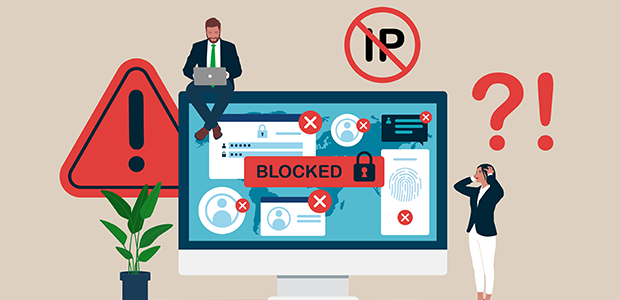
Experiencing a cyberattack: Why startups must not stay silent
In today's digitally interconnected world, startups have emerged as promising ventures with innovative ideas and potential for rapid growth. However, they also face significant challenges, and one of the most threatening issues is cyberattacks.
Startups remain one of the most coveted targets of cybercriminals. Since these small-sized businesses do not have access to the same funding as large corporations, they face more critical challenges during and post cybersecurity attacks. In fact, 60% of small businesses close within 6 months of a cyberattack.
To mitigate these risks caused by cyberattacks, startups not only need to be prepared to prevent but also to deal with cybersecurity incidents. The lack of preparation on how to deal with cyberattacks can prevent startups from taking appropriate actions, which could further cause them to remain silent. This can also lead to negative consequences.
Amplifying the impact: The perils of staying silent
Startups need to understand that staying silent about a cyberattack only makes its impact worse. It can bring about increased fines from watchdogs not only for failing to protect data but also for violating the legislation by not reporting it. Furthermore, it can afford cybercriminals more time to inflict further damage, resulting in increased financial losses and prolonged disruptions to business operations. According to Statista, the average cost of cybersecurity breaches in the UK in 2022 was £1,200 across all businesses.
Companies that stay silent can also aggravate reputational damage by losing the trust of their stakeholders. This in turn can lead to severe consequences - for instance, losing the trust of investors can put startups at the risk of dissolving. Furthermore, unreported cyberattacks can also close the doors for potential countermeasures from stakeholders and authorities. This only makes it difficult for startups to deal and mitigate the impact of cyberattacks. Moreover, it helps malicious hackers who get more time to inflict damage and exploit vulnerabilities. The question is: what should small businesses do to mitigate the risk of a cyberattack?
Actionable advice for startups -
Startups can no longer solely rely on all-in-one solutions, and they must also build a proactive cybersecurity strategy. An effective cybersecurity strategy can help businesses resist a cyberattack - by taking appropriate steps to identify, report, and mitigate further repercussions.
Moreover, startups must also identify their vulnerabilities on an ongoing basis. For example, human error is one of the significant factors that can lead to cyberattacks. In fact, a recent survey by the UK Government highlighted that only 9% of staff regularly change or update antivirus or antimalware software. This reinforces the need for businesses to provide best-practices training to their staff. This can include providing them with the latest information related to unique cybersecurity techniques used by hackers, recognising phishing emails, and using strong passwords.
By providing their employees with appropriate training, education and awareness, startups can empower their staff to minimise the risk of cyberattacks. Employees can monitor network activity and spot any malicious or unusual activities. This can further enable startups to prevent, detect and disrupt a cyberattack in its very early stages. Startups can also increase their resilience to cope with attacks by adopting bespoke tools and by implementing a defence-in-depth approach to mitigate risks.
Zero Trust Architecture (ZTA) - A must-have solution for startups
ZTA is a security model that verifies every user and device attempting to access the network. It operates with zero trust and requires both internal and external users to provide the same level of authentication to gain access. ZTA-based solutions can also authenticate users at various intervals thereby allowing startups to continuously monitor user-activity to minimise unnecessary lateral movement. Adopting a ZTA approach can also strengthen a startup's cybersecurity posture. Not only does ZTA-based solutions reduce the threat surface but they also provide companies with more control and authentication capabilities.
Additionally, cloud-based solutions such as Virtual Desktop Infrastructure (VDI) and Desktop-as-a-Service (DaaS) can play a vital role in dealing with cyberattacks. These cloud-based solutions offer additional protection by storing data and applications in secure, centralised environments. By rapidly switching to backup instances during a cyberattack, startups can minimise downtime and data loss, expediting the recovery process
In the face of ever-evolving cyber threats, startups must prioritise cybersecurity and adopt a proactive approach. By implementing robust cybersecurity strategies and embracing the latest technologies, startups can safeguard themselves and focus towards growth.

